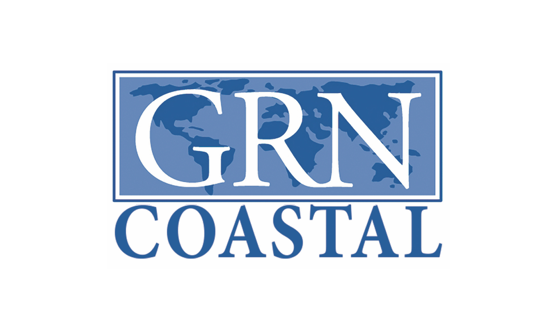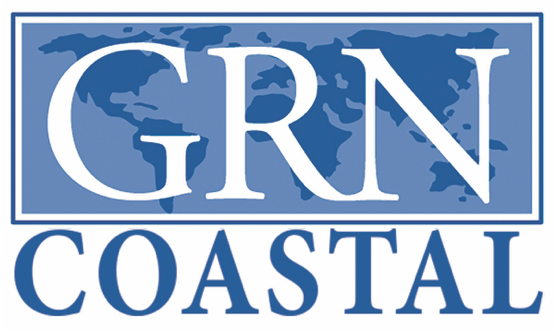Things to consider in the interview process
GRN Coastal takes great pride in ensuring a crisp level of feedback to our clients and candidates. This document outlines a few thoughts that we have received from multiple candidates that have interviewed with multiple clients of ours. We conduct post interview sessions with each candidate after they interview, whether the interview with the client has been via phone or in person. What follows are a few thoughts based on actual candidate feedback.
The Interview Process
The interview process is a critical step in any hiring process and companies need to realize that every step in the process is important. Just as the company is interviewing the candidate, candidates are also making an opinion of the company…
- Is this the type of company I what to work for?
- Are these the type of people I can fit in with?
- Do I like the way my potential boss communicates?
- Can I work for my potential boss, is there chemistry?
- How do they make decisions?
The interview process shouldn’t be viewed as one way communication. To successfully recruit top talent, companies need to realize that they too are being judged very carefully. Top talent has choices and top talent goes to work for the companies that they feel are the best fit for them too. Thus we have assembled a few tips to consider in the interview process.
Image and purpose:
As the client, you are always building your brand and candidates observe the way your team interacts and manages their day. You need to conduct yourselves in the manor that you want your candidate to want to be a part of your organization, as they are interviewing you as much as you are interviewing them
A few tips and observations:
- Be on time for the interview slot, don’t make the candidate sit and wait for your call or appearance in the interview room.
- Don’t get up and stop the interview to take a call or step out of the room in mid interview to talk to someone in the hallway…it sends the wrong message to the candidate…it says something else is more important.
- Don’t cut your phone interview short for another meeting or incoming call, plan ahead, this person in front of you may be the missing link that allows you to hit budget next year!
- Be prepared, you should be very familiar with the candidates resume and be ready to ask specific questions
- Be relaxed and not rushed, don’t appear too busy for the candidate
- Be prepared with questions to ask the candidate, show your interest in their background, and visualize a potential fit.
- Don’t look distracted, show that you care…you don’t want to turn off the candidate.
- Don’t appear not interested and bothered that you are there as an interviewer
- Make a clean handoff to the next interviewer, be professional…remember your brand and image, a clumsy handoff shows that you are not prepared or informed.
- Understand the role clearly that you are interviewing for. Candidates shouldn’t hear different things about the role from interviewer to interviewer; the role needs to be clear and consistent.
- If the role appears to be dynamic, ever changing and the interviewer struggles to answer questions about the role…you lose the candidate.
- There needs to be synergy across the entire interview team, clean handoffs, consistent messaging and image from person to person
- Are you sending the candidate the wrong message when you don’t provide crisp feedback? Will the candidate think that your company can’t make decisions? Will they worry this is how it is going to be if they went to work for your company?
- HR can’t be the only interviewer to be prepared and focused
All these tips are based on actual feedback and observations from actual candidates from interview processes with multiple clients. Although the client is trying to judge the candidate as worthy or not for the role, top candidates are also judging the client from the perspective if they want to work with the company and its people. Sometimes candidates are turned off by how their interviewer acts or the lack of interview feedback in a timely manor as they try to picture themselves working in the office setting of the client and don’t like what “they” see.
Timing
The saying in our office is that “time kills all deals” is very accurate. A few tips on timing:
- We suggest that decisions should be made by clients on resumes received within two (2) to three (3) business days regarding possible interviews.
- We suggest that decisions should be made within 72 hours of a face-to-face interview to proceed or not to proceed (i.e. hire, not hire, or establish time and place for second interview)
- When a resume is submitted for review, a crisp turnaround and yes or no on a candidate is important. To the candidate you want, it shows urgency and interest.
- Getting to the first step of the actual interview process is critical because a candidate that has submitted a resume is interested at that point in time. There shouldn’t be a gap of a number of weeks to decide if you want to interview a candidate. Again, you lose the candidates interest.
- Conducting a clean and crisp initial interview whether by phone or in person sets the tone and pace for the process and engages the candidate’s interest. This is the first impression that the candidate gets of your company, make it a good one.
- Immediate feedback from the interview is critical. If a candidate interviews and then has to wait more than 3 days for feedback, they lose interest and think that the company is not interested and mentally move on. The longer it takes to get feedback , the slimmer the chances of retaining that candidates interest. Each day is critical. The candidates lose interest and they are most likely interviewing with multiple companies. Candidates shouldn’t have to wait and call and wonder how they did. Crisp feedback is very important.
- Let your recruiter do their job. If possible, your recruiter should play a key role at the offer stage. Let your recruiter act as your offer presenter and closer as they have built up the relationship with the candidate over a longer period of time, there is a level of trust and much more dialogue will transact that can lead to closing the candidate. Trust your recruiter. Candidates do not like to negotiate their potential deal with a perspective employer; they don’t like to create a wall of differences before they even begin the job. Clients that insist on taking over the process at the most critical stage (closing stage), greatly impact the ability to close the deal and also begin a relationship smoothly and productively. Some candidates are very uncomfortable negotiating with their future boss. They don’t want to potentially get started on the wrong foot.
Things to consider, a few ideas:
- Have a plan, make sure you have a proposed timeline to fill the role once you have candidates in the funnel
- Once the interview process begins, have a plan to reach a conclusion on a candidate.
- You are hiring to fill a role…not to replace the person who has done the job for 10 years and has been promoted. It is very hard to find a clone but easier to recruit to fill a specific role.
- Have a quick “huddle” meeting to review interview process and interview day procedures. Make sure everyone is on the same page.
- Make sure interviewers are informed, have resumes and any other pertinent information received on the candidate well in advance. Assemble a “package” on the candidate. If there is a format you prefer, make your recruiter submit information in that format.
- Make sure the information you want to get from the candidate is covered in the process. To do that , the interview team should each focus on certain areas of the clients background in order to cover more ground in a interview.
When the interview is complete, have a quick summary form that needs to be submitted into HR within 24 hours of the actual interview so that all data can be assembled and sent back to interview team for feedback and decision on a candidate positon in the process.
Copyright © 2015 by John Salvadore
All rights reserved. No part of this publication may be reproduced, distributed, or transmitted in any form or by any means, including photocopying, recording, or other electronic or mechanical methods, without the prior written permission of the publisher, except in the case of brief quotations embodied in critical reviews and certain other noncommercial uses permitted by copyright law.








